- Jean Monnet Centre of Excellence
- People
- Research
- Education
- PhD Summer School
- Dissemination
- Publications
- Events
- Announcements
Jean Monnet Centre of Excellence
ABOUT US
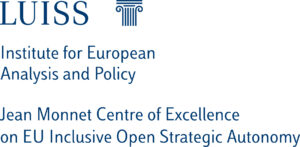

The EU Inclusive Open Strategic Autonomy Centre (IOSAC) is a Jean Monnet Centre of Excellence financed by the European Commission at the Luiss Research Center for European Analysis and Policy. The IOSAC intends to be a European hub for cutting-edge research, teaching and policy analysis to manage a policy tradeoff that the EU currently faces. The European Union aims to maintain and increase its trade competitiveness in a fast, changing global context, characterized by a tendency towards strategic autonomy and geopolitical tensions, while ensuring inclusive outcomes of trade within Europe and the Mediterranean area. Against this backdrop, Italy, due to its geographical position and political tradition, can play an important role. The centre will (1) be the central node of transnational links with academic institutions in core and Mediterranean European countries, (2) gather top notch expertise to design inclusive EU trade and industrial policies and support a twin transition that does not leave behind the Mediterranean region, (3) make such expertise multidisciplinary, and focused on Europe, (4) ensure public outreach to relevant stakeholders and civil society.
Funded by the European Union. Views and opinions expressed are however those of the author(s) only and do not necessarily reflect those of the European Union or Luiss Guido Carli. Neither the European Union nor the granting authority can be held responsible for them.
People

LUISS PARTICIPANTS

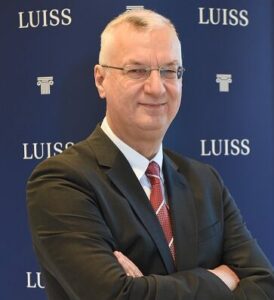
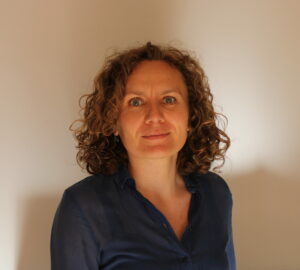

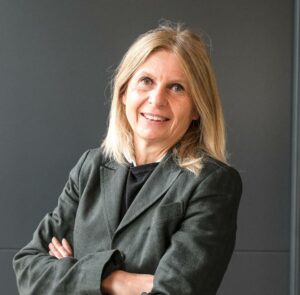
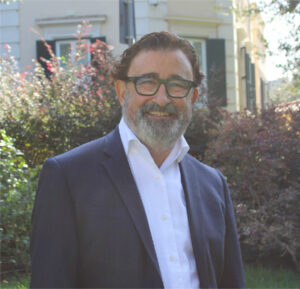
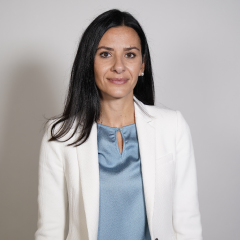
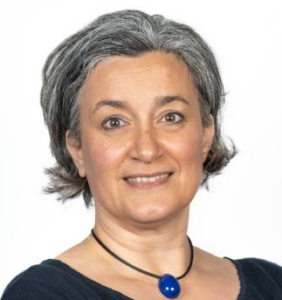
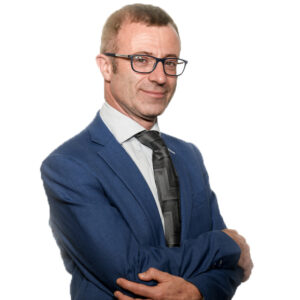
Research

The Centre of Excellence is a key hub for cutting-edge research, teaching and policy analysis, gathering expertise from within the University, as well as external partners to create new research collaborations, to design inclusive EU trade and industrial policies in line with the EU’s priorities of an open strategic autonomy. It will produce Working Papers, Policy Briefs, and 5-bullet points that will reflect the concept of EU inclusive strategic autonomy and disseminate the EU-IOSAC activity. It will foster collaboration across scholars from within the University and its external partners through several initiatives: Seminar Series, two international Workshops “European and Global Value Chains” and “The European Union’s Response to Global Geo-economic Competition”. It will also foster young scholars’ research activity through the Jo Cox Fellowship to host visiting young scholars and the Jean Monnet Scholarship to support Master students during their dissertation or internship in European institutions. There will be one edition of the Italian Trade Study Group (ITSG) annual conference, discussing GVC reconfiguration and inclusive trade.
Education

The Centre has designed and launched new teaching activities aimed at students both within the University and from other Universities, as well as policymakers.
Courses
- “EU Industrial Policy in an era of Geoeconomic competition”
- “European Perspectives in Innovation Studies”
- “European Open Strategic Autonomy”
PhD Summer School
– “Very multi-disciplinary, very interesting and high-level, very stimulating and on the edge of the academic debate.”
– “Great professors!”
– “The content was very relevant for my current and future research.”
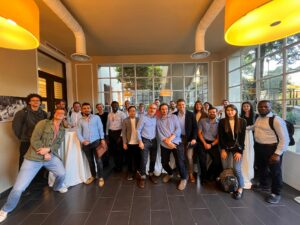
SUMMER SCHOOL 2025
PhD Summer School on the Economics of the Green and Digital Transitions: Innovation Policies for a Global Europe
The rapid advancement of digital technologies, including AI, and the climate emergency are among the most pressing challenges of our time. The European Union has framed these challenges as a need for a twin transition. The challenges are global, impacting how the countries compete in developing and regulating digital technologies, participate in Global Value Chains of production, consumption and pollution, navigate labour markets implications, and collaborate internationally in developing technologies that benefit all. Designing and implementing effective industrial and innovation strategies will be crucial.
This Summer School aims to equip participants with the knowledge and skills to address these challenges within a “Global Europe” framework – exploring the EU’s role and strategic positioning in the face of global challenges, including its approach to international cooperation, competition, and leadership in the green and digital transitions.
UNU-MERIT and The Jean Monnet Centre of Excellence on European Inclusive Open Strategic Autonomy (EU-IOSAC) at the Luiss Institute for European Analysis and Policy (LEAP), in partnership with the University of Strasbourg and with support from the UNESCO Chair in ST&I Policies for sustainable Development in Latin America, is pleased to announce a Summer School on the Economics of the Green and Digital Transitions: Innovation Policies for a Global Europe. The school is organised at UNU-MERIT, United Nations University, in Maastricht, The Netherlands, 16-20 June 2025.
Faculty
PRESENTATION SLIDES
Professors
Students
________________________________________________________________________________________________________
SUMMER SCHOOL 2023-2024
PhD Summer School on European Industrial, Innovation and Trade Policy in the Era of Strategic Autonomy
In the current geopolitical scenario defined by stark challenges and the rapid evolution of global economic dynamics, the concept of open strategic autonomy, championed by the European Union, underscores the imperative for strategic independence and at the same time allows the EU to remain open to global cooperation and competition. As Europe navigates this multifaceted landscape, the integration of diverse perspectives from innovation studies, international economics, and industrial policy becomes essential. To provide the necessary training to PhD Students and early career researchers, the Jean Monnet Centre of Excellence on European Inclusive Open Strategic Autonomy (EU-IOSAC) at the Luiss Institute for European Analysis and Policy (LEAP), in partnership with the University of Strasbourg and UNU-MERIT in Maastricht, organized a PhD Summer School on European Industrial, Innovation and Trade Policy in the Era of Strategic Autonomy from June 3 to June 7, 2024. The lectures attracted the participation of 16 students from various parts if the world. The “Global value chains in Europe” EU-IOSAC Inaugural Workshop concluded the school.
Professors:
Slides from the lectures:
Dissemination

|
International Policy Workshop “Europe and the changing geoeconomics of North Africa” Citizen Jury Newsletter Podcast series EU-IOSAC publishes a series of IOSAC podcasts on “How to shape Inclusive Trade with neighboring Mediterranean countries.” A podcast will be produced for each year of the project with scholars from EU-IOSAC and its external partners, in particular Roma Tre University, Confindustria and the LUISS Mediterranean Platform. Assets and Liabilities of a possible EU Strategic Autonomy is a recording of the keynote speech given by Professor Romano Prodi at the European Industrial Policy in the New Global Context Conference. Digitalization, climate change and justice is a recording of a presentation by Professor Elena Verdolini held in Luiss on January 28, 2024, which is accompanied by the following slides. EU-ISOAC Website |
Web archive
This section constitutes the European Economic Policy web archive of materials concerning EU economic policy (with a focus on Innovation and Trade). It will allow all target groups to freely access a unique tool, which, being a significant source of knowledge and information for the public at large, can facilitate studies on the effects of European economic policy on citizens and firms of Member States. The archive will include all working papers, policy briefs and five bullet points produced by the Centre, as well as the teaching material from the modules and summer school that will be made freely available to all interested parties. It will also provide links to the podcast series and the agendas of all events.
Publications
2026
- P. C. Padoan: Debt Sustainability in the Global Governance Crisis (Policy Brief 1/2026)
- M. Savona, A. Livingston-Ortolani and L. A. Winters: Whom do we trust to take trade policy decisions? (Working Paper 1/2026)
2025
- S. De Nardis: The Green Deal is not “ideological regulation” (Policy Brief 1/2025)
- S. Nunzi – European Strategic Autonomy in the Energy Field: Navigating Geopolitical Challenges, Policy Coordination and Innovation (Working Paper 1/2025)
- Looking at EU strategic technologies through the lens of patents: measuring, impact on productivity, and technological interdependencies (Working Paper 3/2025)
- R. Coletti, A. Filippetti – The recent reforms of Cohesion Policy in Italy: Some considerations and implications (Policy Brief 8/2025)
- F. Bloise, C. Fiorelli, V. Meliciani – Predicting AI patenting of European firms: A Machine Learning approach (Working Paper 4/2025)
- S. De Nardis: European countries and new NATO commitments between governance inadequacies and risks for public budgets (Policy Brief 11/2025)
2023-2024
- L. Panella: The Cost of non-Europe (Policy Brief 18/2023)
- R. Perissich: How Europe should prepare for a second Trump term (and hope it will not happen) (Policy Brief 2/2024)
- C. Bastasin: Germany’s economic weakness may help strengthen the European Union (Policy Brief 3/2024)
- L. Codogno: Italy’s economic miracle is in the eyes of the beholder (Policy Brief 5/2024)
- C. Bastasin: The paradox of the European vote (Policy Brief 7/2024)
- L. Stille: Securing critical materials across the Mediterranean for the EU’s renewable future (Policy Brief 10/2024)
- L. Vinhas de Souza: Comparing EU and US approaches towards Economic Security Strategies (Policy Brief 11/2024)
- P. Guerrieri, P. C. Padoan – “European competitiveness and strategic autonomy”: The European Union and the double challenge (Working Paper 5/2024)
- F. Bontadini, V. Meliciani, M. Savona, A. L. Wirkierman – Nearshoring and Farsharing in Europe within the Global Economy: Regional Trends, Structural Components and Sectoral Patterns (Working Paper 16/2024)
- F. Bulfone, D. Di Carlo, F. Bontadini, V. Meliciani – Adjusting to new geopolitical realities: semiconductors industrial policy in the US and EU (LUHNIP Working Paper Series 2/2024)
- I. Papadakis, M. Savona – The Uneven Geography of Digital Infrastructure: Does It Matter? (Policy Brief 14/2024)
- A. Filippetti, R. Spallone: The new European industrial policy and the gloomy future of Cohesion Policy (Policy Brief 17/2024)
- L. Dibiaggio, L. Nesta, S. Vannuccini – European Sovereignty in Artificial Intelligence: A Competence-Based Perspective (Working Paper 20/2024)
Events
2026
2025
2024
Announcements
2025-26 Open Call
Call for EU-IOSAC Working Papers/Policy Briefs
The winner of the 2024 fellowship was Ariel L. Wirkierman (research proposal).
The winner of the 2024 scholarship was Sofia Nunzi (research proposal).
The winner of the 2025 fellowship is Luca Fontanelli (research proposal).
The winner of the 2025 scholarship is Giacomo Pollastri (research proposal).


